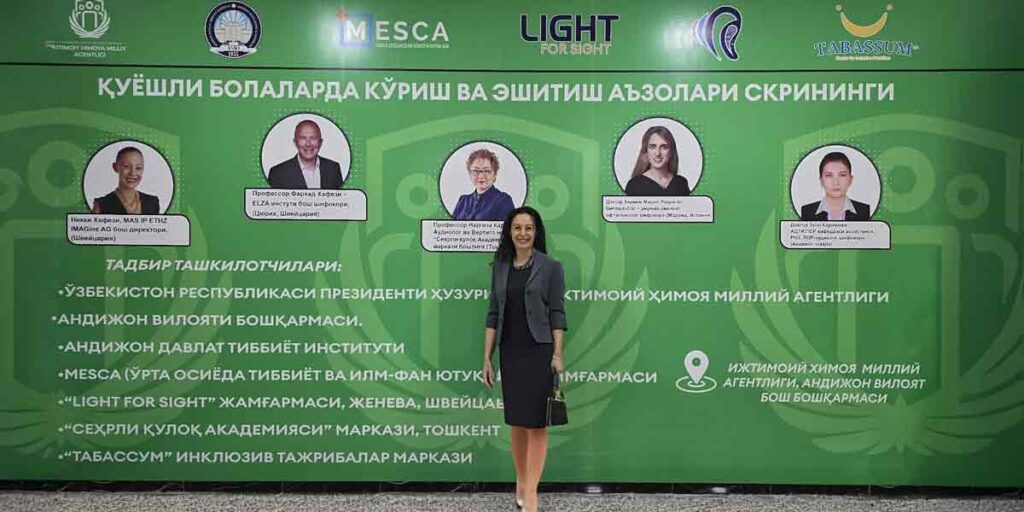Last week, Nikki Hafezi, CEO of the ELZA Institute and co-founder of the Light for Sight Foundation, visited School No.178 in Tashkent, Uzbekistan. Why is this significant? This visit marked an important milestone as the school is the first public institution in Uzbekistan to participate in the global Keratoconus Mapping and Prevalence (K-MAP) study.
The K-MAP study, spearheaded by the Light for Sight Foundation, aims to uncover the true global prevalence of keratoconus, particularly among children and adolescents. Historically, keratoconus has been considered a rare condition, but recent studies suggest its prevalence might be significantly higher. The pilot study in Riyadh revealed a prevalence of 4.79%, nearly 100 times higher than previous estimates. This finding underscores the need for widespread screening and early diagnosis to prevent vision loss through timely interventions such as corneal cross-linking (CXL). As the prevalence of keratoconus varies globally, understanding just how many people have the disease is important in many locations worldwide.
However, Mrs. Hafezi’s visit was more than just a formal engagement. She attended the school’s annual play, an event that highlighted the students’ dedication to the arts. She praised the students for their impressive performance and expressed her admiration for their commitment. However, the highlight of her visit was a conversation with a teacher’s son. This young boy shared his dreams of studying abroad, reflecting a passion for education and a desire for a better future. Nikki was deeply moved by his determination, which reminded her of her own aspirations at his age.
The participation of School No. 178 in this global study represents a crucial step in gathering accurate data on keratoconus prevalence in different regions. By integrating health initiatives with educational environments, the K-MAP study not only aims to advance medical knowledge but also to inspire and support young students in their educational journeys.
Our CEO’s visit to Tashkent serves as a reminder of the importance of engaging with the youth, understanding their dreams, and providing them with the tools and support they need to succeed. Her efforts highlight how both education and health are incredibly important in children’s development, and show how initiatives like K-MAP can have a profound impact on both individual lives and global health outcomes.
